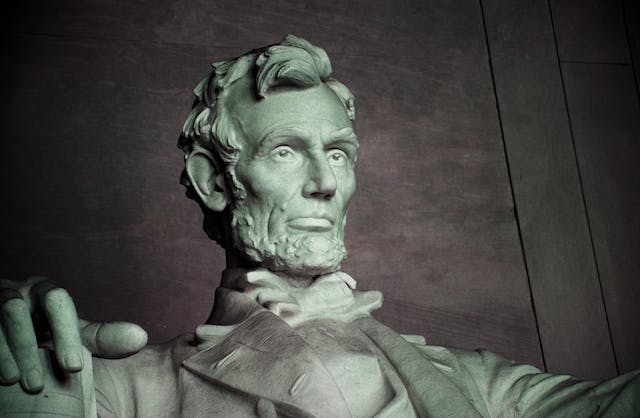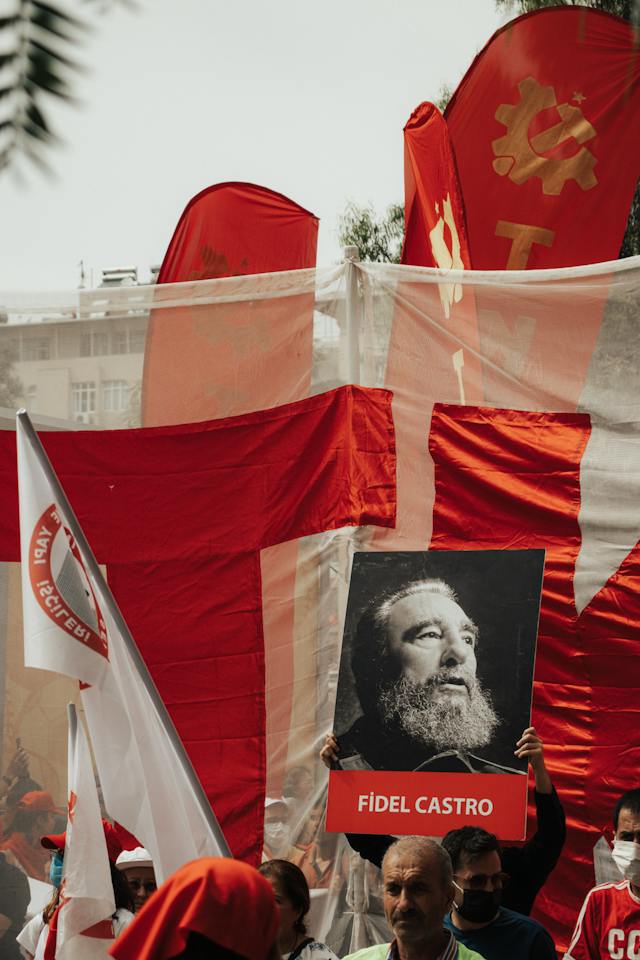Leaders, whether they are good or bad, share a lot of common traits such as high ambitions, determination, confidence and audacity, undeniable magnetism to the masses, and strong communication and oratory skills. They also have such strength of will, powerful, persuasive influence and unflinching patriotism that people find inspiring. Click through this gallery to find out the most inspiring leaders of all time, at a glance.
Napoleon Bonaparte (769 – d. 1851)
Napoleon was a French military and political leader. He is also one of the key figures of the French Revolution, during which he also rose to power. Coming from a modest family, he soared to become one of the greatest leaders in the world. Napoleon, obviously, had the smarts and gained full command of his army (despite his relatively short stature). His methods and tactics for fighting battles are still studied up to the present. Eventually, Napoleon became the Emperor of France, but later he was forced to flee the country and lived in exile on the island of Saint Helena (in the South Pacific) for the rest of his life.
Napoleon’s greatest and most enduring legal contribution, the Napoleonic Code, has been adopted by many countries. His exemplary military leadership and regard for the masses has made him one of the greatest leaders not only in France, but in the rest of the world as well.
Nelson Mandela (1918-2013)
Mandela was a South African politician who led the revolutionary anti-apartheid movement in his country. He was also the first black chief executive and democratically-elected president in South Africa. He unrelentingly fought for racial equality all throughout his life and because of such activities, he was arrested and served a long prison sentence. But even being incarcerated did not deter him from his fight for his rights and the rights of his fellow black Africans. In the end, he led all the way to a freer, more equal South Africa. His heroism and legend have grown even bigger since his death in 2013.
Winston Churchill (1874-1965)
A good leader should also be empathizing toward the people in the harshest of adversities. And the late British prime minister Winston Churchill is the prime example of being such a good leader. He was Prime Minister during World War II where he exhorted his fellow citizens to stand up and defend themselves against the enemies, most particularly the German Nazis. And the United Kingdom did fight against the enemies with help of the Allied forces, and won the war. And Churchill won too — but in this case, the hearts of his people.
Abraham Lincoln (1809-1865)
President Lincoln was the 16th president of the United States. Under his leadership, he led the country through the Civil War — one of the most crucial times in the United States’ political history. In doing so, he tried his best to keep Americans united or else, the country would not be where it is now — one big, united nation. He also abolished slavery by signing the Emancipation Proclamation, and further bolstered the federal government and the nation’s economy.
Adolf Hitler (1889-1945)
You may be likely surprised and disagree with the inclusion of Adolf Hitler in this list. The Fürher, obviously, has been always viewed with intense animosity by most people outside of Germany. However, there’s no question that Adolf Hitler’s command during his rule, especially during his ascension to power during the 1930s and much of World War II. His deeds and motives may not have been always good but his leadership skills have still been considered unmatched by any other world leader, before or since. He was Chancellor of Germany in 1933 and Fürher of Nazi Germany from 1934 to 1945.
Hitler was an excellent oratory speaker. A meticulous man and a perfectionist, he laid all the plans that helped Germany to become one of the economic and military powers during his time. His leadership skills have, in some way, helped shape today’s politics.
Alexander the Great (356 BC – 323 BC)
Alexander is not called “the Great” for nothing. He was the king of the ancient Greek kingdom of Macedon and is still considered as one the greatest military leaders the world has ever known. Alexander the Great was the son of Philip II of Macedon and became a pupil under the great philosopher Aristotle. After his father was assassinated, Alexander succeeded him and inherited a strong kingdom and army. By the time he was 33 years old he ruled a vast empire which stretched from Greece to Egypt to India. Alexander’s supreme military leadership led him to win every single battle he and his battalion encountered. He was also responsible for unifying many Greek states.
Samrat Ashoka (304 BC – 232 BC)
The name Samrat Ashoka may not ring a bell to most Westerners (unless they’re into South Asian history), but his life and deeds are worth knowing. Ashoka (or Asoka) was the major figure of India’s Maurya Dynasty and is regarded as one of India’s greatest emperors. He reigned almost over the entire Indian subcontinent except parts of the today’s Tamil Nadu and Kerala. He ruled India from 273 to 232 BC and was the first leader to unify all of India.
From his initial selfish ambitions of conquest and power, he himself instigated the Kalinga War which is considered one of the bloodiest wars in human history. However, the resulting bloodshed prompted him to convert to Buddhism, becoming India’s first Buddhist king. After his conversion, he attempted to embrace nonviolence as well as other Buddhist principles. Ashoka was an exceptional military leader, promoted various public works in the country, and championed equality as well as the rights and welfare of the minority.
Ernesto “Che” Guevara (1928-1965)
Guevara was an Argentine physician, guerrilla warfare leader, and Marxist revolutionary. Together with Cuban leader Fidel Castro, he was the face of the Cuban Revolution. When he was a young doctor, he visited throughout South America and was struck by its widespread poverty, hunger, and disease that he witnessed. His compassion towards the poor and the downtrodden incited him to rebel against the capitalist exploitation of Latin America by the United States. Soon, he rose to prominence among the insurgents. This eventually led to his execution in 1965.
Although he is reviled as a rebel, Che Guevarra’s compassion toward the destitute, the neglected, and the exploited led him to do good things for them. This, together with his unquestionable charisma, were the things that attracted a lot of people towards him. His famous image has now become a part of popular culture.
Along with Argentine guerrilla leader and revolutionary Che Guevara, Fidel Castro (born in 1926) led the Cuban Revolution which began in the early 1950s. In the years following the Revolution, Castro became the president and then prime minister of Cuba. Being one of the key figures of the Cuban Revolution, he encountered many problems, crises, as well as assassination attempts from the opposition.
What makes Castro one of the greatest world leaders is that he has proven to be an excellent Commander. His courage, as well as his vision and strategic, calculated and analytic reasoning are the factors that led Cuba to where it is now.
Franklin Delano Roosevelt (1882-1845)
President Roosevelt is also an example of a good leader who led and inspired his people in some of their worst years. In the case of President Roosevelt, he presided during the Great Depression in the United States and then the World War II. He implemented reforms and relief that helped the country make an amazing economic recovery. He is also one of the greatest wartime leaders who helped America rise to power.
Franklin Delano Roosevelt was not only a great statesman but also an excellent military strategist. He once served as the deputy secretary of the US Navy, and his reorganization of the Navy changed the muddy status quo of the US Navy. At the outbreak of World War I, Roosevelt’s navy made immortal military exploits. Which made Roosevelt famous and gained more supporters. Until now, some military-related souvenirs or gifts related to Roosevelt, such as stamps, Navy challenge coins, etc., have been very popular among the American people. If you are looking for a gift with military elements, a custom Roosevelt Navy Challenge Coin would be an excellent option.You can see more at gs-jj.com.
President Roosevelt contracted polio at age 29 and it left him paralyzed from the waist down. He spent the rest of his years as a wheelchair-bound individual. Yet, his handicap didn’t deter him to reach for the highest goal — to hold the highest political position of the United States. Not only that, he became the only American president to be elected for four straight terms until his death in 1945. Franklin D. Roosevelt is definitely an inspiration particularly for the handicapped and the disadvantaged.
George Washington (1731-1799)
Apart from being the first president and one of the Founding Fathers of the United States, what else can be remembered of George Washington?
Of course, President Washington is still considered as one of the greatest leaders that the world has ever seen. He led the American Revolutionary War, led the country in its first few years of independence, and presided over the Philadelphia Convention which drafted the Constitution, which is still the supreme law of the land.
Washington held boundless vision for the country, and this helped to bring America to where it is now, centuries later. Apart from that very vision, his steadfastness and ability to make rational decisions in the face of worst adversaries are only a few of the things that made George Washington a great and inspiring world leader.
Gaius Julius Caesar (100 BC – 15 BC)
Caesar is one of ancient Rome’s greatest emperors. He was a Roman military commander, statesman, Consul and a genius, to say the least. He played a crucial role in the eventual downfall of the Roman Republic and the birth and rise of the Roman Empire.
On the battlefield, Julius Caesar was quick, clever, and sharp-minded. As a politician, he forged excellent strategies and plans for expansion of his empire. Because of his supreme leadership, he reigned over almost all of Western Europe. But because of this very leadership, he also transformed into a dictator who used force as a form of abusing his power. He was also among the first to cultivate a cult of personality which future leaders (and dictators) came to adopt.
Mahatma Gandhi (1869-1948)
Gandhi is not only one of India’s greatest leaders. He is one good example of a world leader who used peaceful means to oppose adversaries in order to gain equality and complete independence.
Born Mohandas Karamchand Gandhi from a family of merchants, he studied law in London and became a barrister there. During his sojourn to South Africa, he saw and experienced discrimination on himself and other fellow Indians. This awakened him to social injustice and became a major turning point in his life, dictating his later fate.
Gandhi rose to lead a non-violent civil disobedience against the tyrannical British rule. He would fast and go on hunger strikes with other Indians until their demands were met. He believed in truth and that only truth shall prevail. Without bloodshed or any harm to others, India became independent from the British in 1947. Gandhi became the face of the nation, a revolutionary martyr, and undoubtedly one of the greatest world leaders of the 20th century.
Mao Zedong (1893-1976)
Some great leaders started and led a major change in a certain place and time. Mao Zedong (1893-1976) was a Chinese Communist revolutionary and the founder of the People’s Republic of China, or today’s China.
Chairman Mao, as he is popularly referred to, was credited by many as the one who overthrew imperialism in China. He also helped in bolstering China’s economy, thus making it into a world power that we know of the country today. He also resisted Japanese invasion during the Sino-Japanese War which ended around the same time the World War II concluded. Mao’s vision for the Chinese people eventually led the country to become one of the most powerful Asian nations. However, many critics also denounce him as a ruthless dictator.
Martin Luther King, Jr. (1929-1968)
An American activist, King is known for his remarkable fight for racial equality and civil rights without the use of force and bloodshed. Like Mahatma Gandhi, King used non-violent means of civil disobedience but he based it on his Christian beliefs, being also a Baptist minister.
Through his work as an activist and a leader of the civil rights movement, King proved to people that equality can be achieved without the use of violence. He also showed them that, with all men being equal, the country would achieve a better future. His courage, perseverance, the will to fight for what’s right and good, as well as his unflinching faith, have inspired many people across the world.






